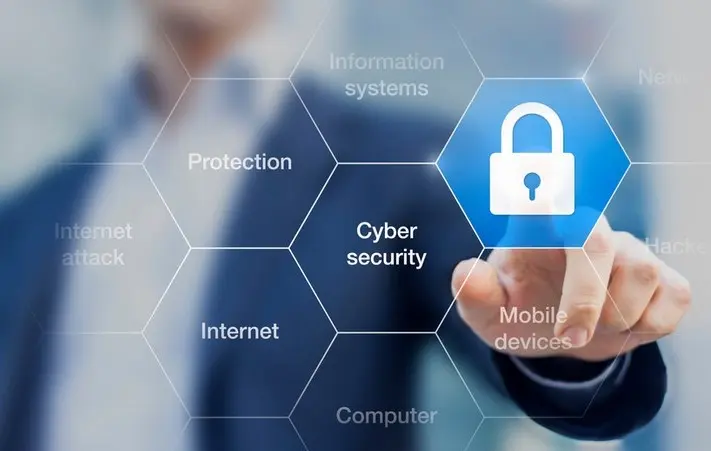In today’s rapidly advancing business landscape, technology plays a pivotal role, and small businesses heavily rely on it for their daily operations. From online transactions to storing sensitive information, the internet has become an indispensable tool for small business owners. However, this increased reliance on technology also exposes small businesses to the risk of cyber attacks. Surprisingly, recent studies indicate that 43% of cyber attacks target small businesses, making it imperative for owners to prioritize cybersecurity to protect their companies from online threats.
Dispelling the Myth: Do Small Businesses Really Need Cybersecurity?
Many small business owners mistakenly believe that their enterprises are too small to attract the attention of cybercriminals. Unfortunately, this misconception can prove to be extremely dangerous. Cybercriminals frequently target small businesses precisely because they perceive them as easy targets. With typically fewer security measures compared to larger corporations, small businesses become highly vulnerable to cyber attacks.
Understanding the Significance of Cybersecurity in Business
The Importance of cybersecurity in business cannot be overstated. A successful cyber attack can result in substantial financial losses, severe reputational damage, and even legal liabilities. Implementing cybersecurity measures helps safeguard networks, systems, and sensitive information, shielding businesses from these risks.
The Benefits of Cybersecurity for Businesses: Why Investing in Security Measures Is Worth It
Investing in cybersecurity brings forth a host of advantages for small businesses. Let’s explore some key benefits:
Benefit №1: Comprehensive Protection against Cyber Attacks
Cybersecurity measures, such as firewalls, antivirus software, and intrusion detection systems, offer crucial protection against malicious cyber attacks. By making these investments, small businesses can safeguard their networks, systems, and sensitive information from the clutches of cybercriminals.
Benefit №2: Compliance with Industry Regulations
Various industries have regulations in place that necessitate businesses to protect customer data. For example, the healthcare sector must adhere to HIPAA regulations that require safeguarding patients’ health information. As you can see, cybersecurity and small businesses are becoming a single entity, allowing companies to ensure compliance, reduce legal liability and protect sensitive data.
Benefit №3: Enhanced Customer Trust
Customers seek to engage with companies they trust. By investing in robust cybersecurity measures, small businesses demonstrate their commitment to data protection. This fosters customer trust and loyalty, ultimately leading to increased revenue generation.
Benefit №4: Safeguarding Intellectual Property
Small businesses often rely on intellectual property, such as patents and trade secrets, to gain a competitive edge. Cybersecurity measures provide a vital shield against cybercriminals attempting to steal this valuable intellectual property. By investing in cybersecurity, small businesses can preserve their competitive advantage and protect their proprietary information.
Benefit №5: Ensuring Business Continuity
Cyber attacks can disrupt business operations, resulting in lost productivity and revenue. However, by investing in cybersecurity measures, small businesses can fortify their networks and systems, ensuring uninterrupted business continuity even in the face of an attack.
Identifying Common Cybersecurity Threats for Small Businesses
If you haven’t yet realized why small businesses need cybersecurity, let’s take a look at some common threats they may face. Some of the most common risks include:
Risk №1: Phishing
Phishing is a type of cyber attack wherein criminals send deceptive emails appearing to be from legitimate sources, aiming to trick recipients into divulging sensitive information. Small businesses are often targeted through phishing attacks due to their perceived vulnerability.
Risk №2: Ransomware
Ransomware involves malware that encrypts a company’s data, demanding a ransom payment for the decryption key. Small businesses are particularly targeted in ransomware attacks as they are more likely to pay the ransom to retrieve their crucial data.
Risk №3: Insider Threats
Insider threats arise when employees or contractors inadvertently or intentionally compromise the company’s network or system security. Small businesses may face an increased vulnerability to insider threats due to less stringent security protocols in place compared to larger organizations.
Risk №4: Unsecured Devices
Many small businesses allow employees to use personal devices, such as smartphones or laptops, for work purposes. However, these devices often lack the same level of security as the company’s networks and systems, making them susceptible to cyber attacks.
Risk №5: Lack of Employee Training
Employees can unintentionally become the weakest link in a company’s cybersecurity defenses. Without proper training, they may fall victim to phishing attacks or utilize weak passwords, inadvertently compromising the company’s security.
Essential Cybersecurity Tips for Small Businesses
Starhouse Tech experts highlight ten cybersecurity tips for small businesses that will help minimize the risk of threats. Let’s take a look:
Tip №1: Strong Passwords
Ensure that employees use strong, unique passwords and encourage regular password changes. Utilize password managers to assist in password management.
Tip №2: Multi-Factor Authentication (MFA)
Require employees to enable MFA for all accounts. MFA adds an extra layer of security by requiring a secondary form of authentication, such as a fingerprint or security token.
Tip №3: Data Encryption
Implement encryption for sensitive data, both during transmission and while at rest. Encryption prevents unauthorized access and maintains data confidentiality.
Tip №4: Regular Software Updates
Regularly update all software, including operating systems, applications, and antivirus software, to patch vulnerabilities that could be exploited by cybercriminals.
Tip №5: Limited Access to Sensitive Data
Restrict access to sensitive data only to employees who require it for their roles. This minimizes the risk of insider threats and ensures the security of sensitive information.
Tip №6: Regular Data Backups
Frequently back up all data to an off-site location to enable restoration in the event of a cyber attack or data loss incident.
Tip №7: Employee Education
Educate employees about cybersecurity risks, best practices, and the importance of remaining vigilant. This empowers them to recognize and respond effectively to potential threats.
Tip №8: Firewall Protection
Utilize firewalls to shield the company’s network from unauthorized access, preventing cyber attacks from reaching critical systems and data.
Tip №9: Virtual Private Networks (VPNs)
Implement VPNs for secure remote access to the company’s network, safeguarding against unauthorized entry and potential data breaches.
Tip №10: Regular Security Audits
Conduct routine security audits to identify vulnerabilities within the company’s networks and systems. This ensures the ongoing effectiveness of cybersecurity measures for small businesses.
Conclusion
As small businesses increasingly face the risk of cyber attacks, prioritizing cybersecurity becomes imperative. By investing and adhering cybersecurity best practices for small businesses, companies can fortify their networks, systems, and sensitive information, safeguarding against potentially devastating losses and preserving customer trust and loyalty.
While implementing cybersecurity measures may require initial investment, the potential costs of a cyber attack far outweigh the upfront expenses. Сompanies should consider cybersecurity a top priority, proactively taking steps to protect themselves from online threats. By staying informed, utilizing cybersecurity technologies, and training employees to adopt best practices, small businesses can establish a secure environment, keeping their operations safe from data breaches and cyber attacks.





